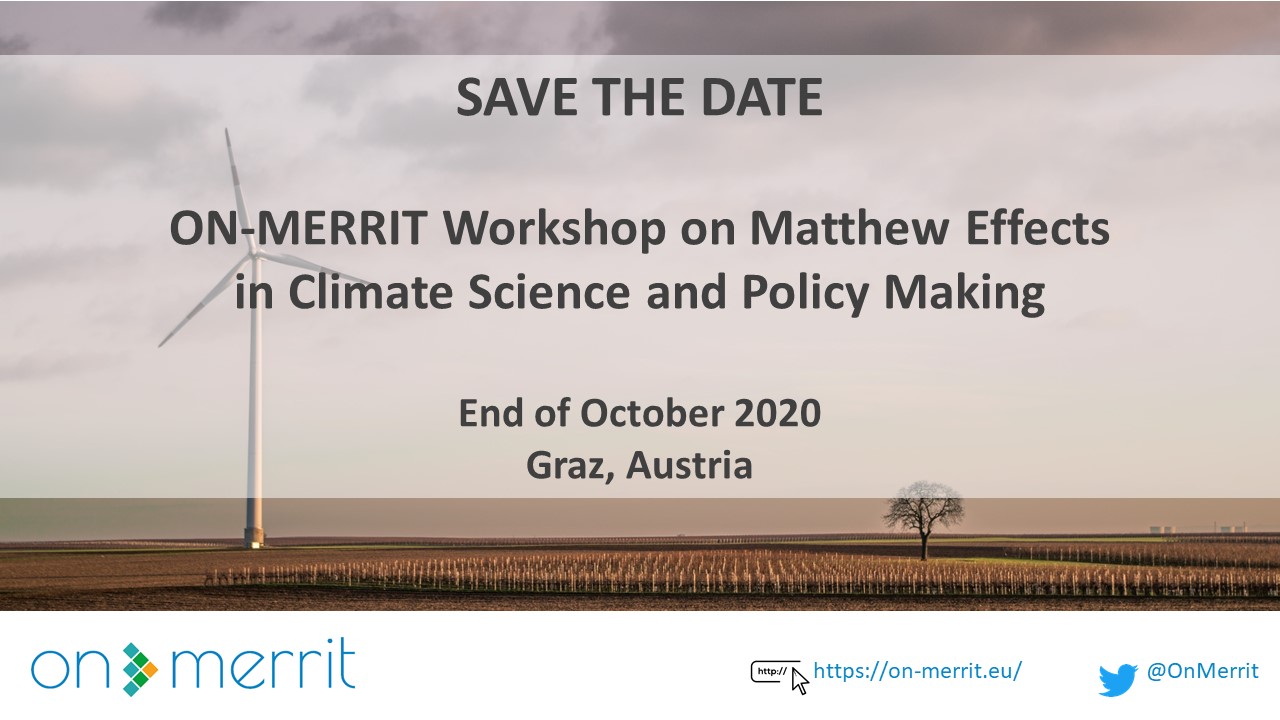Workshop on Matthew Effects in Climate Science and Policy Making
2020-07-21
Open Science for the few is just the extension of privilege. Equity is a key aim of open science, but could Open Science policies actually worsen existing inequalities? Open Science needs resources (funding, time, knowledge, skills), and the traditionally advantaged people usually have more of them. Will their privilege mean that they are the ones to benefit most? How can we avoid the dynamic of the rich getting richer, known as the Matthew effect?
The project ON-MERRIT (Observing and Negating Matthew Effects in Responsible Research & Innovation Transition) investigates the impact of open science practices in academia, industry, and policy with a particular focus on institutions and individuals working in the areas of agriculture, climate and health (key pillars of the UN Sustainable Development Goals). For more details about ON-MERRIT, please visit https://on-merrit.eu/.
The first of three ON-MERRIT workshops is targeted specifically at experts, practitioners and policymakers in the fields of climate science and RRI and aims to understand potential effects of cumulative advantage (Matthew Effects) in RRI policy making and practice. The workshop will address two key research questions
- How are Open Science outputs used in policymaking?
- Which societal actors participate in Responsible Research & Innovation (RRI) and OS policymaking?
Through e.g. keynote addresses, group discussions, and group exercises, participants will be asked to provide their insights on the following questions:
- Whose voices are heard in RRI policy making, and for which reasons?
- Who is left out?
- Which actors are the most influential, and for which reasons?
Background: The use of publicly available scientific outputs by policymakers has been claimed to be one of the benefits of Open Science (OS). However, there is yet little empirical evidence as to the impact of OS practices on research uptake by policymakers. In fact, the relationship between evidence and policy is frequently described as a “gap”, highlighting the difficulties that prohibit the use of scientific evidence in policy making.
Our systematic review (see 10.5281/zenodo.3875055) found that researchers and policymakers are described as living in frequently incompatible worlds. Policymakers seek information that is timely, relevant, credible, and readily available, but struggle with knowledge management and appraisal of research outputs, in addition to a lack of resources, knowledge, and skills to utilize research. Few academics participate directly in the policy process. Factors conducive to research uptake are access to relevant and clear information and good relationships between researchers and policymakers, as policymakers prefer receiving information through personal networks rather than academic publications. The reviewed literature suggests that the availability of information in the form of academic publications and other research outputs is of secondary concern, but that improved infrastructure for sharing scientific outputs could have a positive impact on the use of evidence in policy making.
